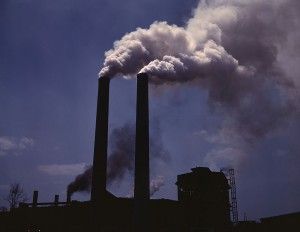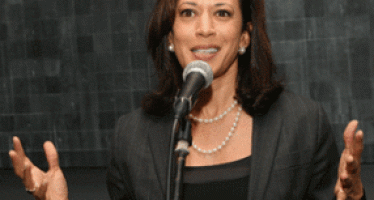Political Chicanery Behind AB 32's Delay
By WAYNE LUSVARDI
Looks like ending global warming wasn’t so important after all. In 2012, California was supposed to implement the Cap and Trade part of AB 32, the Global Warming Solutions Act of 2006. Now that’s being delayed because of politics.
Mary Nichols, the head of the California Air Resources Board (CARB), last month delayed imposing Cap and Trade for one year. How convenient. That means the economic desolation Cap and Trade will bring to California — shuttered businesses, more companies leaving the state, extended unemployment lines — will be delayed beyond the the 2012 national presidential election and the campaign to re-elect Democratic California Sen. Dianne Feinstein, a big advocate of Cap and Trade.
We should have gotten Cap and Trade good and hard now, so we could use the election as a referendum on its real economic effects, rather than merely on its political symbolism as an “anti-dirty energy law.” But the postponement shows that Cap and Trade is less about the environment than politics.
Cap and Trade is a program to control air pollution emissions by making 600 industrial plants buy and sell emission permits mandated under AB 32.
In November 2010, California voters shot down Proposition 23, which would have suspended AB 32 unil unemployment dropped to 5.5 percent for a year. Unemployment in California in May was 11.7 percent.
Ironically, during that same statewide election Republican gubernatorial candidate Meg Whitman ran on a campaign platform in which she opposed AB 32, but backed a one-year moratorium on implementing it. The winner of that race, Gov. Jerry Brown, was flat out opposed to any suspension of the state’s new anti-Global Warming law (see video).
Suspending Cap and Trade
Fast forward to June 30, 2011, the day before the state budget must be adopted for the new fiscal year begins. Mary Nichols — the un-elected head of the California Air Resources Board (CARB) — coincidentally announced out of thin air that California’s Cap and Trade program is going to be “delayed” for one year!
The reason given was to debug any problems with the complex computerized emissions trading program before rollout in January 2012. Paraphrasing ancient Greek writer Aesop, the tardy often blame delay on their dog or their computer. The Air Quality Control Board has had five years to prepare for the start of the program.
How is it that a non-elected California official can administratively rule to delay the implementation of the state’s Cap and Trade program over the authorized provisions of the Legislature, over the will of the electorate to not suspend the program and over the platform upon which the current governor won election to not delay it? And to think that California Gov. Jerry Brown continues to talk of a “legitimacy crisis” with the state budget and compliance with the “will of the people” on new environmental laws!
Justice Delayed is Justice Denied
Democracy and the rule of law in California are highly selective based on political convenience and hidden agendas. Don’t expect California Attorney General Kamala Harris to go to the courts to seek expeditious implementation of Cap and Trade in order to comply with legislative and electoral mandates.
State Senator Kevin De Leon, D-Los Angeles, wants AB 32 delayed so that his pending bill can be enacted: SB 535, the California Communities Healthy Air Revitalization Trust. It would impose an excise tax on Green Power and transfer the money to low income communities that are purportedly unfairly impacted by air pollution.
In reality, SB 535 would end up taxing residents of smoggy areas like Visalia, Merced and Fresno and transferring those taxes to clean-air coastal low-income communities such as Oakland and Richmond.
Smoggy Bakersfield would end up being taxed to subsidize clean tech jobs and industries in Oxnard, which enjoys clean coastal air and a cooler ocean climate. It would result in a tax on those who live in relatively wealthier coastal smoggy cities such as San Diego and Carlsbad and give those taxes to lower income, but equally smoggy, coastal National City.
Just Politics
So much for California’s ”Global Warming Solutions Act” that would end up as a set of phony taxing schemes to subsidize jobs and clean tech industries in low-income coastal communities that enjoy cooler climates and cleaner air quality!
Once again, don’t expect Attorney General Kamela Harris to rule that politicians can’t undo a statewide election that mandated no delay to AB 32, including Cap and Trade.
And why didn’t Gov. Brown overrule his appointee on the Air Board — Mary Nichols — and declare that Cap and Trade cannot be delayed in violation of the original law and the defeat of Prop. 23? In California, democracy is politically convenient and justice is for the politically connected, based on legalized environmental fictions. Cap and Trade is a rough program that is whatever politicians want it to be to serve political, not air quality, ends.
On June 21, the California Field Poll reported that support for Sen. Dianne Feinstein’s “lock” on reelection had fallen apart even though no known Republican opponent has materialized.
Cap and Trade’s delay beyond 2012 is tacit acknowledgement that Cap and Trade will hit the California economy hard and fast.
Sending California Dollars to Colorado
Under a pilot program in 2010 that may signal how California’s Cap and Trade Program will work, Xcel Energy Corp in Colorado sold $33.6 million of renewable energy credits from wind farms to California. Colorado electricity consumers got about 54 percent of that and Xcel got 36 percent, with the remaining 10 percent going to buy carbon offsets for Xcel’s carbon dioxide emissions from its conventional power plants in Colorado.
So, under California’s version of Cap and Trade, California electricity ratepayers would be subsidizing energy consumers in Colorado, providing a whopping profit to Xcel, and helping pay for pollution permits for Colorado power companies. California Cap and Trade would be a giant sucking sound of revenues to out-of-state renewable energy suppliers. Under such a system, it wouldn’t take long for Californians to start feeling the pain.
Francis Bacon wrote: “The vices of authority are chiefly four: delays, corruption, roughness, and facility [convenience].” California Cap and Trade involves all four.
The Chicago Climate Exchange, a cap and trade program in the Midwestern U.S., folded in 2010 after a 10-year run ended in failure.
When the political maneuvering finally is finished, AB 32’s Cap and Trade scheme will be imposed, will fail and will meet the same fate as the Chicago Climate Exchange. The sooner we get the debacle over with, the better.
Related Articles
Relief for government, not taxpayers
Commentary By STEVEN GREENHUT A state appeals court this afternoon upheld Alameda Superior Court Judge Steven Brick’s halting of the
Leg committee hearing: Prop. 30 a loser
Editor’s note: This is the first in a series of articles on the propositions on the November ballot. Oct. 8,
Harris tempts challengers with ‘blood sport’ politics
Attributing her success to a “blood sport” view of politics, California Attorney General Kamala Harris has established herself as the leading contender to




